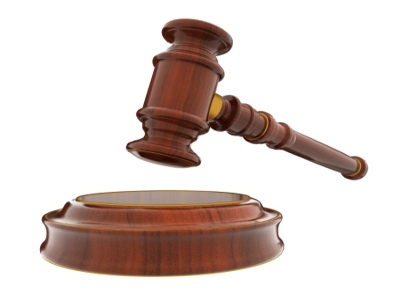Lightspeed Sues AT&T, Comcast
 YNOT – Lightspeed Media Corporation has added internet service providers AT&T and Comcast Cable Communications and both companies’ corporate executives as respondents in its lawsuit against more than 6,000 John Does Lightspeed accuses of trading passwords obtained by hacking into its adult websites.
YNOT – Lightspeed Media Corporation has added internet service providers AT&T and Comcast Cable Communications and both companies’ corporate executives as respondents in its lawsuit against more than 6,000 John Does Lightspeed accuses of trading passwords obtained by hacking into its adult websites.
An amended complaint, filed Aug. 3 by Prenda Law Inc., alleges the communications giants aided the hackers, thereby engaging in civil conspiracy, aiding and abetting computer fraud, pursuing unjust enrichment and violating the Illinois Consumer Fraud and Deceptive Practices Act. The original case, Lightspeed Media Corporation vs. John Doe, was filed in the 12th Judicial Circuit Court in St. Clair County, Ill., Dec.14, 2011.
Lightspeed asks the court for injunctive relief preventing AT&T and Comcast from continuing to participate in what the company calls a “criminal enterprise,” and for unspecified monetary damages.
To date, Lightspeed has uncovered the name of one alleged perpetrator: Anthony Smith. The company’s attorneys call Smith “one of the alleged ringleaders of the hacking gang.” Lightspeed’s efforts to uncover additional identities were hampered in July when the Illinois Supreme Court ordered a lower court to consider quashing subpoenas seeking personal information about end-users from ISPs including AT&T, BellSouth, Verizon Wireless, Centurytel, Cox, Embarq, Qwest, Wayport and Comcast.
After deliberation, U.S. District Judge Beryl A. Howell, who earlier had dismissed the ISPs’ motion to quash, on Aug. 6 denied the motion and ordered the ISPs to hand over user details as demanded by the subpoenas.
Attorneys for AT&T and Comcast declined, saying complying with the subpoenas’ demands could cost them thousands of subscribers. They may appeal the order, as the judge suggested was their right.
The ISPs’ refusal to comply precipitated the current filing. According to documents filed with the court, AT&T and Comcast “knowingly assisted, or negligently allowed, Smith’s co-conspirators to engage in the widespread, persistent and continuing hacking into [Lightspeed’s] protected website and to misappropriate and disseminate content from [Lightspeed’s] website.”
Furthermore, AT&T and Comcast have “opposed and interfered with all of [Lightspeed’s] attempts to ascertain the identities of [their] subscribers who are involved in this widespread criminal activity, prevented [Lightspeed] from any available mechanism for obtaining damages and stopping the hacking, and acted as the de facto legal counsel for Smith’s co-conspirators by asserting substantive claims to defenses and liability on their behalf in litigation….”
The ISPs have “thus allowed the extensive criminal activity to continue, and [have] profited, and continue to profit, from the illegal activity of the conspiracy by continuing to seek monthly subscription fees from members of the conspiracy while sheltering and assisting continued civil and criminal wrongdoing,” the amended complaint states.
Despite the David vs. Goliath appearance of the new filing, Lightspeed attorney Paul Duffy said he believes the new allegations stand a good chance of receiving favorable consideration from the court.
“The courts have a strong history of protecting the little guy against unlawful corporate practices,” he said. “In the Ford Pinto case, for example, Ford made a business decision to pay legal damages instead of the $11 per car to make Ford Pinto gas tanks safe. Similarly, AT&T and Comcast have made a business decision to protect alleged criminals instead of severing lucrative contracts.
“AT&T and Comcast subscribers have threatened my client’s livelihood while continuing the unfettered hacking that is destroying his business, all under the protection of AT&T and Comcast,” he added.









